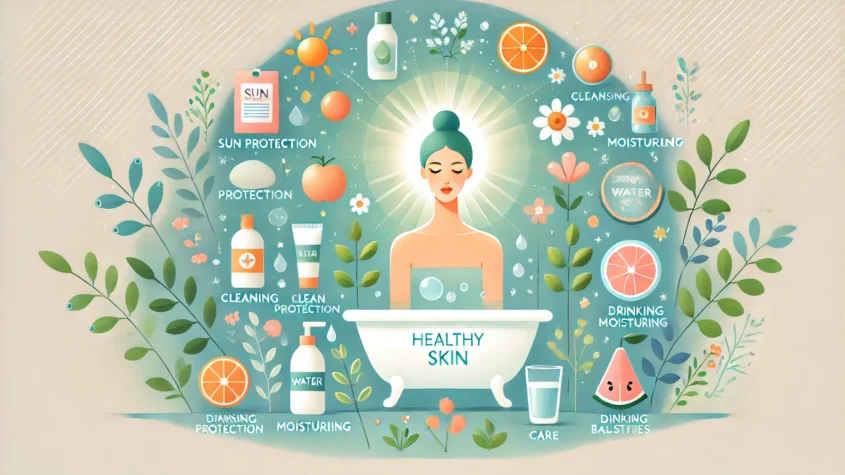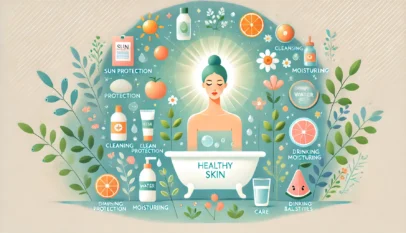
White hair can be a surprising and often unwelcome change that many experience. Understanding the causes of white hair is essential for anyone looking to prevent it naturally. Factors such as genetics, nutritional deficiencies, and environmental influences play a significant role in this transformation.
Many individuals search for effective methods to maintain their natural hair color. Simple lifestyle adjustments and natural remedies can support healthier hair and potentially slow the graying process. Embracing these strategies not only addresses the aesthetic concerns but also promotes overall well-being.
The journey to keep hair vibrant and youthful is one that countless people share. Exploring the reasons behind gray hair and what proactive steps can be taken will empower them to take control of their hair health.
Understanding the Causes of White Hair
Several factors contribute to the development of white hair. Genetics, lifestyle choices, environmental influences, and nutritional status can all play significant roles. Addressing these aspects can help individuals understand and manage the onset of white hair.
Genetics and Aging
Genetics is a primary factor in determining when an individual may begin to experience white hair. If there is a family history of premature graying, it is likely that the individual will encounter the same issue.
As people age, the body produces less melanin, which is responsible for hair color. Once melanin production decreases significantly, hair can turn white or gray.
This natural aging process varies for each person. Environmental factors and lifestyle choices may accelerate the onset for some, while others may retain their color longer.
Lifestyle Factors and Environmental Influence
Lifestyle choices, such as smoking and excessive sun exposure, can contribute to the appearance of white hair. Studies indicate that smokers are more prone to premature graying due to oxidative stress and damage to hair follicles.
Moreover, environmental stressors, including pollution and harsh chemicals from hair products, can negatively impact hair health. These factors can lead to damage that affects melanin production and hair color.
Stress has also been associated with graying hair. Chronic stress may cause hair follicles to enter a resting phase, leading to hair loss and a change in pigmentation.
Nutritional Deficiencies and Medical Conditions
Nutritional deficiencies play a significant role in hair health. Lack of essential vitamins and minerals, such as B vitamins, vitamin D, iron, and zinc, can lead to changes in hair pigment.
Certain medical conditions, including autoimmune disorders and thyroid imbalances, can also cause premature graying. Conditions like vitiligo can disrupt melanin production, resulting in white patches in hair.
Regular health check-ups and a balanced diet can help mitigate these risks. Eating a variety of nutrient-rich foods supports overall hair health and may prevent or delay the onset of white hair.
Natural Prevention and Management Methods
Preventing and managing white hair can be approached through various effective methods. Home remedies, dietary adjustments, and stress management play significant roles in promoting hair health naturally.
Home Remedies and Traditional Practices
Many traditional methods focus on natural ingredients known for their benefits. Coconut oil is a popular choice, often mixed with amla (Indian gooseberry) to nourish hair and promote pigmentation. Applying this blend regularly can support hair color retention.
Another effective remedy is the use of black tea. It contains caffeine which may help darken hair naturally. Steeping black tea leaves in hot water, cooling the mixture, and applying it to the hair can enhance its color.
Moreover, henna is a well-known natural dye that provides a reddish tint to the hair while conditioning it. Frequent use of henna can improve hair texture and softness, serving as both a dye and treatment.
Dietary Changes and Supplementation
A balanced diet can significantly affect hair health. Incorporating foods rich in vitamins B12, iron, and zinc is essential. Sources such as leafy greens, nuts, and whole grains contribute to healthier hair.
Omega-3 fatty acids, found in fish like salmon and flaxseeds, can nourish the scalp and promote healthy hair growth.
Supplementing with biotin can also be advantageous. This vitamin is known for its role in promoting hair strength and reducing hair loss, potentially preventing premature graying.
Stress Management Techniques
Chronic stress is linked to premature graying. Engaging in yoga and meditation can lower stress levels and enhance overall well-being. These practices help relax the mind and body.
Incorporating regular physical exercise into daily routines can improve mood and reduce anxiety. Activities like walking, jogging, or cycling promote better blood circulation.
Finally, focusing on adequate sleep is crucial. Quality rest helps the body repair itself and can positively impact hair quality and pigmentation.
These methods collectively contribute to healthier hair and may prevent or reduce the onset of white hair.
Copper Mining Stock: Insights and Trends for Investors
Investors are increasingly looking towards copper mining stocks as a strategic opportunity…










